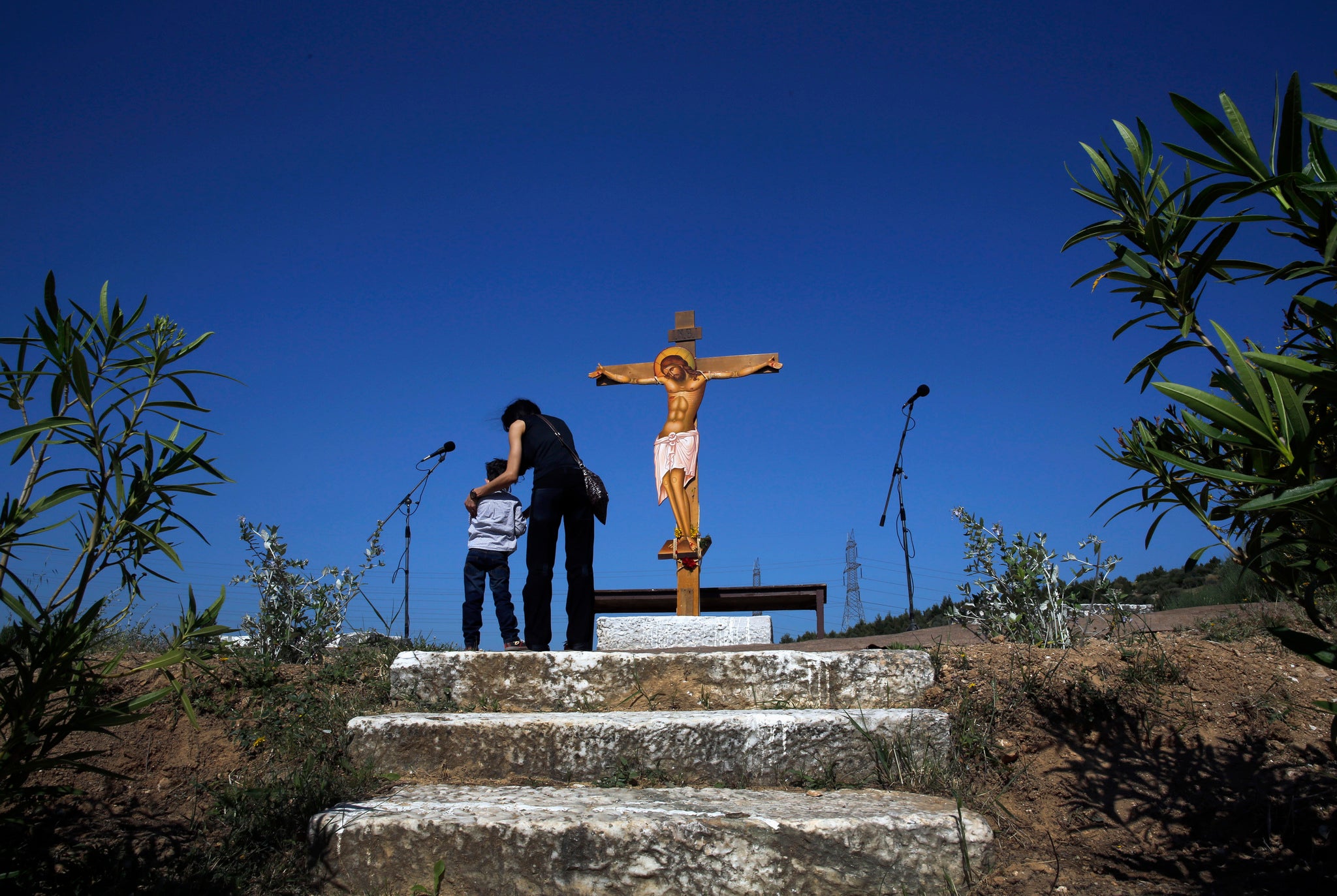Iraq's 'Irvine Welsh' wins the Independent Foreign Fiction Prize for The Iraqi Christ

Your support helps us to tell the story
From reproductive rights to climate change to Big Tech, The Independent is on the ground when the story is developing. Whether it's investigating the financials of Elon Musk's pro-Trump PAC or producing our latest documentary, 'The A Word', which shines a light on the American women fighting for reproductive rights, we know how important it is to parse out the facts from the messaging.
At such a critical moment in US history, we need reporters on the ground. Your donation allows us to keep sending journalists to speak to both sides of the story.
The Independent is trusted by Americans across the entire political spectrum. And unlike many other quality news outlets, we choose not to lock Americans out of our reporting and analysis with paywalls. We believe quality journalism should be available to everyone, paid for by those who can afford it.
Your support makes all the difference.The Independent Foreign Fiction Prize has its first Arabic winner. And what a winner: Hassan Blasim’s The Iraqi Christ, translated by Jonathan Wright, is a collection of 14 short stories set largely in the blood-stained and hope-drained aftermath of the 2003 invasion and occupation.
Think Irvine Welsh in post-war and post-Saddam Baghdad, with the shades of Kafka and Burroughs also stalking these sad streets. Often surreal in style and savage in detail, but always planted in heart-breaking reality, these 14 stories depict a pitiless era with searing compassion, pitch-black humour and a sort of visionary yearning for a more fully human life. Jonathan Wright’s translations convey all their outrage, their sorrow, their ribald merriment and blistering imaginative vitality.
The second of Blasim’s story collections after The Madman of Freedom Square (2009), The Iraqi Christ deserves to take its place as a modern classic of post-war witness, elegy and revolt. Blasim and Wright share the £10,000 award, which is supported once again by Arts Council England and Champagne Taittinger, with Booktrust the supplier of crucial backroom expertise.
Born in 1973 in Baghdad, Blasim studied at the city’s film school. As a screenwriter and director, he won awards for Gardenia and White Clay. However, in 1998 he quit Saddam’s capital for Iraqi Kurdistan, an autonomous region since the first Gulf War of 1990-1991. There he continued to direct but under a pseudonym, since his family still lived in Baghdad. In 2004, he moved to Finland. In Arabic, many of his stories first appeared online. “Whenever my publisher participated in a book fair in an Arab country, the book was forbidden to be displayed,” he has said. The Madman of Freedom Square was published in an edited version in Lebanon in 2012, but soon fell foul of the censors in Jordan.
Published by the Manchester-based short-story specialist Comma Press, The Iraqi Christ sustains a rare and invigorating run of success for the compact form. This streak began with Alice Munro’s Nobel Prize last October and continued when George Saunders took the inaugural Folio Prize for Tenth of December. With minds, families, communities all shattered into ragged fragments by invasion, by lawless carnage and by the dictatorship that preceded them (which Blasim never forgets), these piecemeal tales both evoke a landscape of disintegration and try to rebuild meaning out of it. “A story’s a story, whether it’s beautiful or bullshit,” says someone in the opening “The Song of the Goats”, about a story contest staged by a radio station in order to reclaim memory from disaster. Later we learn that the mystic poet Rumi wrote: “The truth was once a mirror in the hands of God. Then it fell and broke into a thousand pieces. Everybody has a small piece of it, but each one believes he has the whole truth.” Blasim makes a jigsaw from these bloodied shards of life.
His scenes of occupied Iraq can alarm, dismay and horrify. Suicide bombs and other fatal vehicles break the flow of life and story-telling alike in a time when “superstitions had become the law, and God had become a sword for cutting off people’s heads and declaring them infidels”. Yet, as the dog-narrated “Beto” puts it, “life is both garbage and a flower”. Amid all the scars of combat, these stories seek and find comedy, magic, affection and even an urge towards transcendence, the “mysterious desire for salvation” that drives the self-sacrificial hero of the title piece. The canvas broadens to take in the peril and shock of people-trafficking routes into Europe, and the calm forests of Finnish exile. There our canine sage laments the crimes and follies of humankind: “They have created poems for the dignity of humanity, while others create long wars that have yet to end, and perhaps never will. Their poems are awash with shame and loss, and still they smile like clowns.”
This year’s judges - Alev Adil, Natalie Haynes, Nadifa Mohamed, Shaun Whiteside and myself - remained enthusiasts and cheerleaders for all six books on our shortlist. The other finalists were Hiromi Kawakami’s Strange Weather in Tokyo (translated by Allison Markin Powell; Portobello), Karl Ove Knausgaard’s A Man in Love (Don Bartlett; Harvill Secker), Hubert Mingarelli’s A Meal in Winter (Sam Taylor; Portobello), Yoko Ogawa’s Revenge (Stephen Snyder; Harvill Secker), and Birgit Vanderbeke’s The Mussel Feast (Jamie Bulloch; Peirene Press). All had their champions. However, one other book apart from the winner inspired such passionate advocacy that it merits a special mention here. We deeply admired Birgit Vanderbeke’s The Mussel Feast (in Jamie Bulloch’s translation from the German) for its chillingly perceptive, subtly narrated and perfectly-pitched portrait of despotism in one family within the context of national catastrophe. The judges salute and warmly recommend this brilliantly crafted chamber-piece.
Join our commenting forum
Join thought-provoking conversations, follow other Independent readers and see their replies
Comments